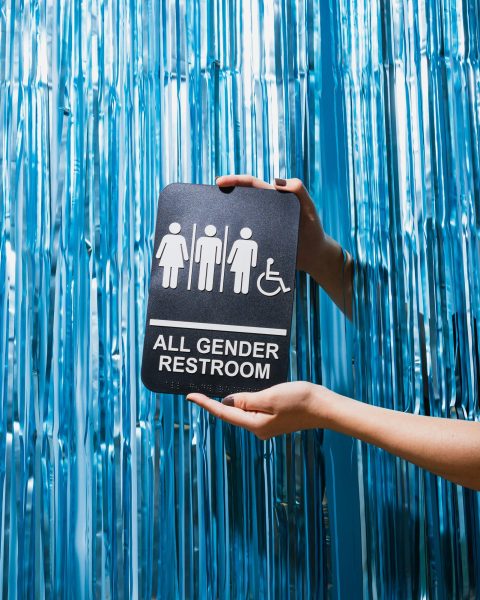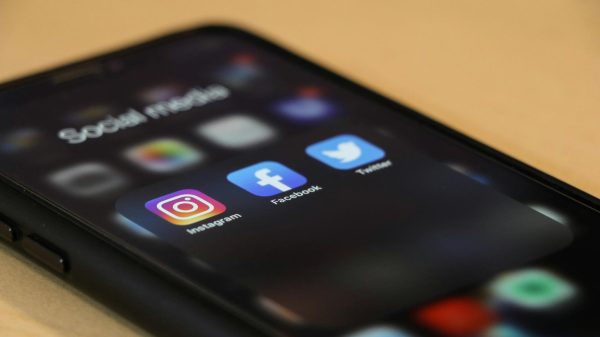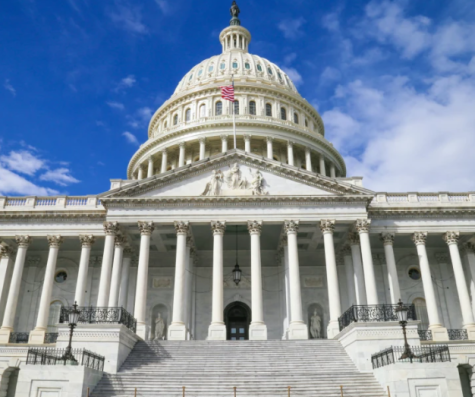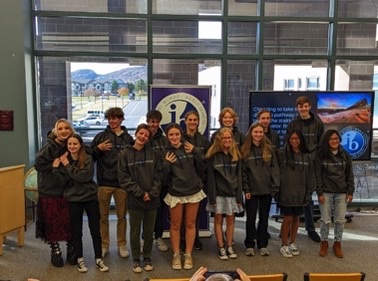History Will Remember the COVID-19 Pandemic, for Better or Worse
Photo Credits: CDC/Alissa Eckert, MS; Dan Higgins, MAMS.
COVID-19 is a type of coronavirus which has caused a global pandemic, changing daily life as we know it.
March 19, 2020
So much for 2020 being the year where we finally put it all together. Life as we know it has been put on hold, with the suspensions of school, jobs, sports, and travel turning March into something unrecognizable. Every person on Earth is at risk of contracting COVID-19, and the population of senior citizens and those with compromised immune systems are at the most risk of potentially dying due to the virus. It may be hard to look beyond the loneliness of self-isolation and the panic on TV, but the streets you see outside your window are the streets you will one day see in a history textbook.
History books used to seem so far away. We can’t imagine what it was like to be alive during the American Revolutionary War in 1776, nor can we fathom how it felt when the Emancipation Proclamation was issued in 1863. Even the World Wars, which are remembered by the few remaining witnesses of those times, feel like they existed in a completely different world.
How can the coronavirus pandemic of 2020 possibly compare to those events? How can we be living through something as consequential to the world as wars and revolutions?
Despite the dire nature of the pandemic, the coronavirus outbreak has given modern historians and astute observers an unprecedented ability to see the effects that new technologies are having on the overall human condition. This new world we live in is characterized as “globalized,” or more internationally connected than ever before. Everything from trade markets to tourism is dependent on other countries in every modern nation, and if that isn’t any indication, international travel was projected to increase by 137% in 2020 in comparison to 2004, according to Statista. That increase represents a jump from around 2 billion boarded passengers in 2004 to around 4.7 billion boarded passengers in 2020.
It doesn’t take an expert to recognize international flights as one of the most important organs of a globalized world, but it’s also painfully obvious that international travel is why virtually every country has dozens or thousands of cases of the coronavirus, even though the virus originated in Wuhan, China. The world has never seen an outbreak on the scale of COVID-19 before — even when another type of coronavirus, the SARS virus, infected various cities around the globe in 2002-2003, daily life did not drastically change.
Now, within a matter of months, COVID-19 has practically taken over the world, crippling countries like Italy and crushing the American stock market. The panic-inducing spread of the virus has been attributed to “stealth symptoms” by scientists from Columbia University, as people don’t even know that they have the virus, or even that they’re sick, for days after they contract it. Couple this phenomenon with thousands of international flights happening at any given moment, and you have the perfect recipe for a global outbreak.
Other new technologies of the 2010’s such as social media, virtual academics, and national news machines are also playing a large role in how the world is responding to the coronavirus. There has never been another moment in human history where someone in America, for example, could share what was going on in their country online and have someone from another country read it almost instantaneously. Also, schools across the nation, like Dakota Ridge, have adopted online education for the immediate future, able to adapt to the changing conditions of society due to the presence of computers in the majority of students’ homes. To complete the trinity, the news media exists to gather the information and present it to millions of viewers across their respective nations in an attempt to help the public make the best decisions possible.

President Donald Trump has been under fire for his handling of COVID-19, as there is an extreme shortage of tests throughout the country.
As a result, the majority of humans across the globe have the potential to be more informed than past generations ever were, but with this potential comes its counterpart — misinformation. Social distancing has had a rough time getting started in the United States, as for every doctor providing factual information on the dangers of the virus, there are misinformed people with influence spreading the antithesis of those facts. People who don’t want to accept the reality of coronavirus now have the ability to justify their ignorance, and as a result, beaches, malls, and restaurants are still open across the country.
What will it take to create an effective self-quarantined public in the United States? Although the NBA has postponed its season, the NCAA has canceled March Madness, and thousands of artists have canceled their concerts over the next few months, there are still seemingly infinite opportunities for mass gatherings, the most recent being Spring Break. Is it a matter of when, and not if, the president will announce mandated self-quarantine for the entire US?
This is President Trump’s first true crisis, and his overall handling of the situation will be vital as to whether history will view his presidency as a success or a failure. For that matter, leaders of any country have always been judged by their ability to navigate crises, and the COVID-19 pandemic certainly fits that definition. Will we see abnormal amounts of turnover in coming elections across the globe? Only time will tell.
Regardless of the future outcome, what is happening right now will likely go down as one of the pivotal moments of the 21st century. All of the world’s “progress” is on display for better or worse, and for the first time in history, we can see all of the developments across the globe in real-time.
Although COVID-19 seems to be drowning everything like a tidal wave, it is truly the great clarifier. Like a filter, the virus removes the dirt from the water, and it will be history’s job to decide if the pebbles left behind are trash or treasure.













